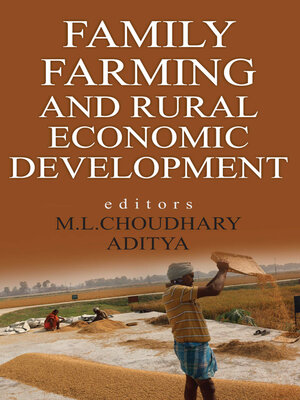
Sign up to save your library
With an OverDrive account, you can save your favorite libraries for at-a-glance information about availability. Find out more about OverDrive accounts.
Find this title in Libby, the library reading app by OverDrive.



Search for a digital library with this title
Title found at these libraries:
| Library Name | Distance |
|---|---|
| Loading... |
Family farming is the predominant form of agriculture in the food production sectors in both developing and developed countries. It mainly includes all family-based agricultural activities, and it is linked to several areas of rural and social development. It is understood as a means of organizing agricultural, forestry, fisheries, pastoral and aquaculture production which is managed and operated by a family and increasingly reliant on family labour of both men and women. In developing countries like India, a number of factors are key for the successful development of family farming, such as: agro-ecological conditions and territorial characteristics; access to markets; policy environment; access to land and natural resources; access to technology and extension services; access to finance; demographic, economic and socio-cultural conditions; availability of specialized education among a few.The United Nations has designated the year 2014 as the International Year of Family Farming at the 66th session of the United Nations General Assembly recognizing the increasing role of family farming in poverty alleviation and rural development in particular. The content of the book offers a diverse selection of s that address issues of importance to those in the agriculture industry, researchers, faculty, and others.







